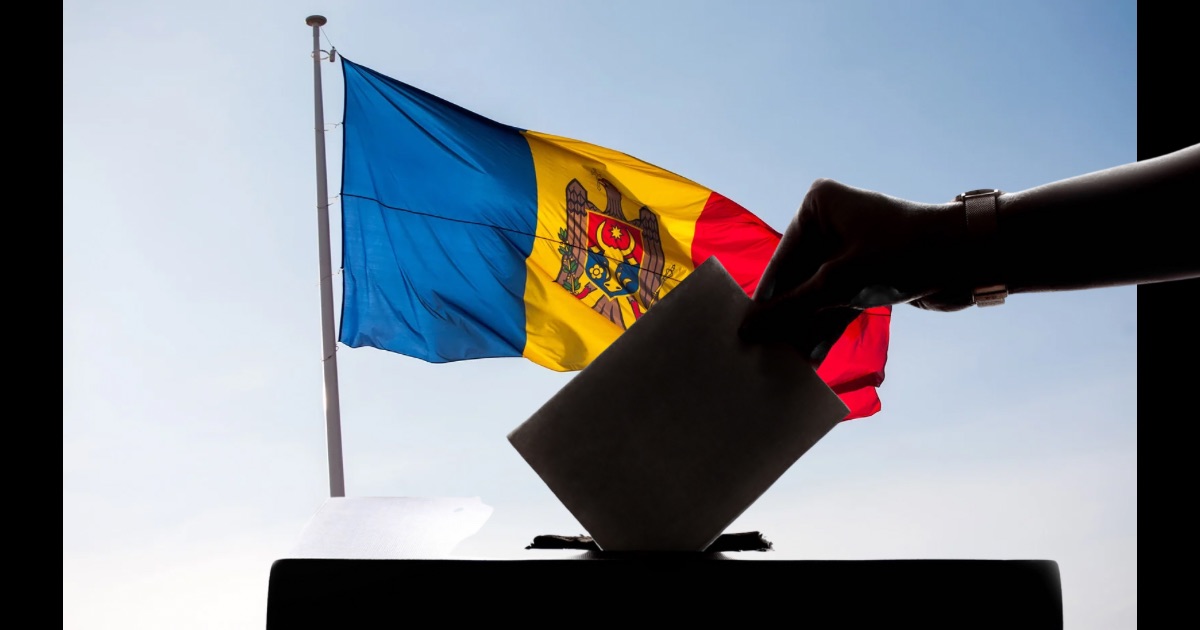By: Steve Gill and Kline Preston
Moldova recently reached an important democratic milestone, celebrating 34 years of independence from the former Soviet Union. In a few weeks the country will experience another significant democratic event when it holds parliamentary elections on Sunday, September 28, 2025. This vote comes at a critical juncture for the small European nation, as it continues to struggle with domestic challenges and also positions itself between competing interests in Europe and Russia.
Currently, both the Moldovan Parliament and the presidency are controlled by a single pro-Western political party, called the Party of Action and Solidarity (PAS), which seeks to maintain its majority in Parliament. However, it faces stiff and well-organized opposition, including parties with alleged ties to Russia and a platform aimed at moving away from the dependency on the EU.
The Moldovan Parliament has significant control over the executive branch by approving the prime minister and the cabinet, making the outcome of this election especially consequential. But despite the huge international significance of the election, the Moldovan government is blocking legitimate election observers from being in place to observe and certify the validity of the results.
The integrity of this parliamentary vote will not only impact Moldova’s future but also serve as a broader measure of the democratic process in the region. Outside interests continue to exploit democratic vulnerabilities in developing countries as they invest to sow confusion, amplify divisions, and fuel domestic instability for their own strategic gains. It is clearly in the interests of the United States, along with its European allies and partners, to support Moldova’s ability to hold free, fair, and transparent elections and to permit the scrutiny and oversight of the process that will ensure its acceptance as legitimate and valid. At this point, that is not happening.
The October 2024 Moldovan presidential election and constitutional referendum resulted in victory by the incumbent pro-EU President Maia Sandu and the adoption of an amendment to include the goal of EU membership in the Moldovan constitution. While the election observation mission of the OSCE Office for Democratic Institutions and Human Rights (OSCE/ODIHR) noted well-managed voting and free campaigning, it also flagged the misuse of administrative resources, uneven media coverage, and foreign influence and interference. The Civic Coalition for Free and Fair Elections deemed the process only partially free and fair, citing illicit financing, foreign intervention, and voter manipulation that “seriously undermined the integrity of the electoral process”. The Moldovan Constitutional Court validated the votes, in a controversial and disputed ruling, but it also directed Parliament to pass legislation to curb electoral corruption and the involvement of religious bodies in political activities.
The voter base in Moldova is starkly divided and the election results are likely to be extremely narrow. In a June 2025 opinion poll by the International Republican Institute (IRI), 49% of respondents said they considered that the country was heading in the right direction and 48% in the wrong one. Despite the small margin, the poll indicated that public support for the government’s reform agenda and EU membership continues to have a small majority. The results of the election will certainly be contested, both internally and externally, making it more important than ever that the election process is carefully observed, reviewed, and accredited. So why are the Moldovan government, and other countries with interests in a valid result, balking at establishing a transparent and verifiable presence of observers and international media?
Two leaders of the OSCE Parliamentary Assembly’s election observation mission to the September 28 elections will be in Chisinau in preparation for the full deployment of observers later this month.
However, the number of observers they expect to deploy will be relatively limited, and some are already questioning the bias of the pro-EU OSCE.
In the weeks preceding the 2025 parliamentary elections in Moldova, the Moldovan government is again blocking representatives designated by groups that have a long list of fair and unbiased election observation in several countries, including Scotland, the U.S., Russia and others. However, they are only accepting groups that meet their preordained biased perspectives.
Repeated requests and documentation regarding the background of the proposed observers, the Moldovan government denied the request for US-based attorneys to observe the election process, either the voting taking place in Moldova or at the satellite locations in the United States.
“In response to your repeated requests, we would like to inform you that the Central Election Commission maintains its decision not to invite your organization to monitor the parliamentary elections on September 28, 2025.
Please note that, in accordance with the Electoral Code, the Central Election Commission is the only state authority in the Republic of Moldova responsible for inviting foreign institutions to observe elections.”
The Moldovan Central Election Commission cited their own regulations limiting those entities they accept and rejecting the application by Institute For Progress Through Law, which again has a long and substantial record of fair and unbiased election observations:
“At the same time, according to Art. 88 (4) and point 7 of the Regulation on the status of observers and procedure of accreditation, the application for the accreditation of international observers can be submitted only if the entity has received an invitation from the Central Election Commission to monitor the elections.
In this regards, please be informed th
In view of the stated regulatory provisions, your request cannot be granted.”
In other words, if you do not fit our pre-selected preferred biases that are likely to produce the results we desire, then we cannot let you observe the election.
Attempts by Institute For Progress Through Law to enlist the support and assistance by the US State Department, which presumably has an interest in a fair and credible election result in Moldova has failed to elicit the necessary intervention. Thus, regardless of the results of the election, the process limiting outside observers and independent media sources, will only amplify the criticism and lack of credibility attached to the final results.
It is unfortunate that Moldova, on the cusp of making real progress towards fair and free elections and a Democratic process that their own citizens and those around the world can trust, prefer to put their thumbs on the scales of the election process in order to protect and preserve political power by those chosen internally or by the EU. None of this provides the foundation for a safe, secure, prosperous, and free Moldova in the years ahead.
Steve Gill and Kline Preston are Senior Partners in the Preston Gill Group, a global legal and business consulting firm based in Nashville, Tennessee. They’ve both been heavily involved in U.S. politics for decades and have both hosted and conducted election observation in multiple countries.








